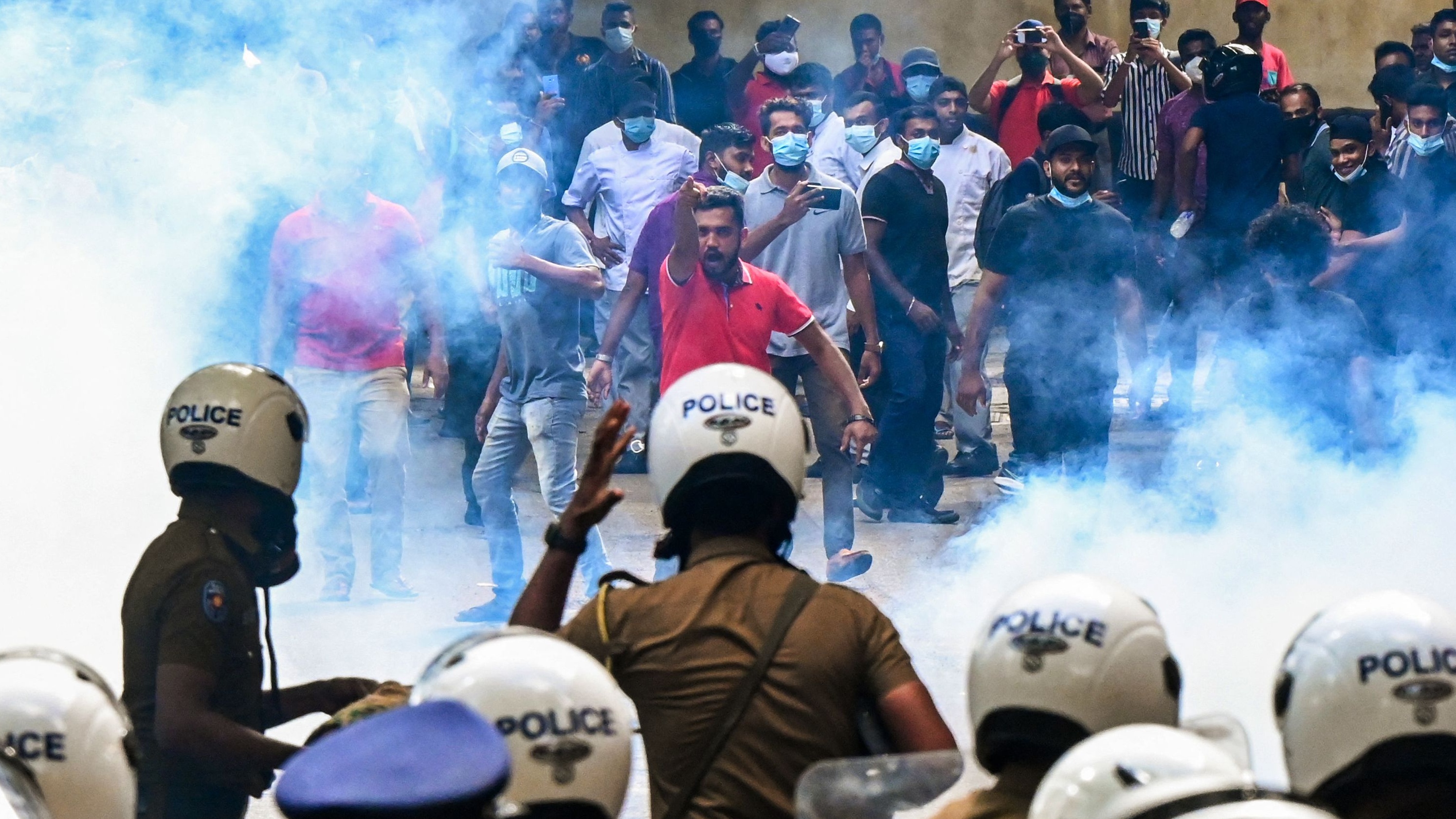The countries that could follow Sri Lanka into economic chaos
Food and fuel shortages that rocked Asian nation are spreading around the globe

A free daily email with the biggest news stories of the day – and the best features from TheWeek.com
You are now subscribed
Your newsletter sign-up was successful
Sri Lanka’s worst economic collapse since it gained independence may soon spread around the world, triggering what experts have warned could be “a crisis of mega proportions”.
The South Asian nation has gone from “donor darling” to defaulting on its debt as a result of “mismanagement”, “rising inflation”, “surging food and fuel prices” and “higher interest rates” caused by Russia’s invasion of Ukraine, the Financial Times (FT) said.
And “Sri Lanka is unlikely to be an isolated case”, The Telegraph reported, with other nations about to “be pushed to a similar breaking point” as the ongoing conflict in Europe triggers the “weaponisation” of food supplies and “pushes prices to record highs”.
The Week
Escape your echo chamber. Get the facts behind the news, plus analysis from multiple perspectives.

Sign up for The Week's Free Newsletters
From our morning news briefing to a weekly Good News Newsletter, get the best of The Week delivered directly to your inbox.
From our morning news briefing to a weekly Good News Newsletter, get the best of The Week delivered directly to your inbox.
Global collapse
Sri Lanka is a nation on the brink, having grappled for months with its economic crisis. Shortages of basic foods, fuel and medicine – as well as ten-hour daily power cuts – have become the norm. Inflation, which is running at 20%, has made savings worthless.
Last weekend, the country “defaulted on a multi-million pound foreign debt payment” having “failed to pay $78m (£63m) in debt interest”, the BBC reported. The default will “seriously damage investors’ confidence” in the country, making it “harder for it to borrow money on international markets and threatening the value of its currency”.
The G7 – Canada, France, Germany, Italy, Japan, UK and the US – has pledged to provide help to Sri Lanka in securing debt relief. Meanwhile, China, which is owed $6.5bn (£5.1bn) by the country, is in talks about how to restructure the debt.
Anger has “boiled over” in a “wave of retaliatory violence” after “attacks on anti-government protesters” and the “imposition of a military-enforced curfew”, the FT said. President Gotabaya Rajapaksa, whose family dominates Sri Lankan politics, is “fighting for his survival” after the resignation of his brother Mahinda as prime minister.
A free daily email with the biggest news stories of the day – and the best features from TheWeek.com
But Sri Lanka may be just the “first domino to fall in the face of a global debt crisis”, said The Guardian’s economics editor Larry Elliott. It is the first country “to buckle under economic pressures compounded by Russia’s war on Ukraine”, but “it won’t be the last”.
Next domino
Many “low- and middle-income countries” are struggling with the same “three-pronged crisis” that is affecting Sri Lanka, namely “the pandemic, the rising cost of their debt, and the increase in food and fuel prices caused by Russia’s invasion”, Elliott warned.
And “the list of countries that look vulnerable is long and varied”.
According to the World Bank, as many as a dozen developing countries are at risk of experiencing an economic crisis. Marcello Estevão, global director of macroeconomics, trade and investment, has said 60% of the lowest-income countries were in “debt distress” or at “high risk” of it before the war in Ukraine.
There has been much “speculation that Turkey would be the first domino to fall”, said The Guardian’s Elliott. But “despite an annual inflation rate of 70% and an unconventional approach to economic management, it is still standing”.
Importantly for the government in Ankara, “Turkey is able to feed its own people” in the event of a crisis, “unlike some other countries under threat”.
The International Monetary Fund (IMF) is also “in talks with Egypt, Tunisia and Pakistan about dispensing urgent loans”, The Telegraph reported.
Cairo has already “received billions of dollars in financial support from several Gulf Arab states”, Reuters said, while Islamabad is also facing a “default threat” having “struggled to keep its economy afloat” for months, according to The Times of India.
Analysts have also warned that Burkina Faso, Mali and Chad “are close to the brink”, The Telegraph said, as well as raising alarms about Kenya, Ethiopia and South Africa, where a “spillover” from the Ukraine conflict could “damage the country’s financial stability”.
The IMF has also said that Latin America “faces unusually high risks” as a result of the conflict. El Salvador and Argentina are particularly exposed, it warned, while Peru has raised interest rates to the highest level in over a decade to curb inflation.
Nowhere is safe
Addressing reporters last month, World Bank president David Malpass said he was “deeply concerned about developing countries” as a result of “sudden price increases for energy, fertiliser and food, and the likelihood of interest rate increases”.
“Emerging market crises are nothing new,” said The Guardian’s Elliott. But in this case, the international community is “ill-prepared to deal with a looming debt problem”.
“Countries have domestic problems but most of the shocks have nothing to do with those,” said Richard Kozul-Wright, from the United Nations Conference on Trade and Development.
“The pandemic and the war had nothing to do with these countries, but have led to a huge increase in borrowing. The system can only deal with these problems country by country. But these are systemic issues and currently there is no way of dealing with them systematically.”